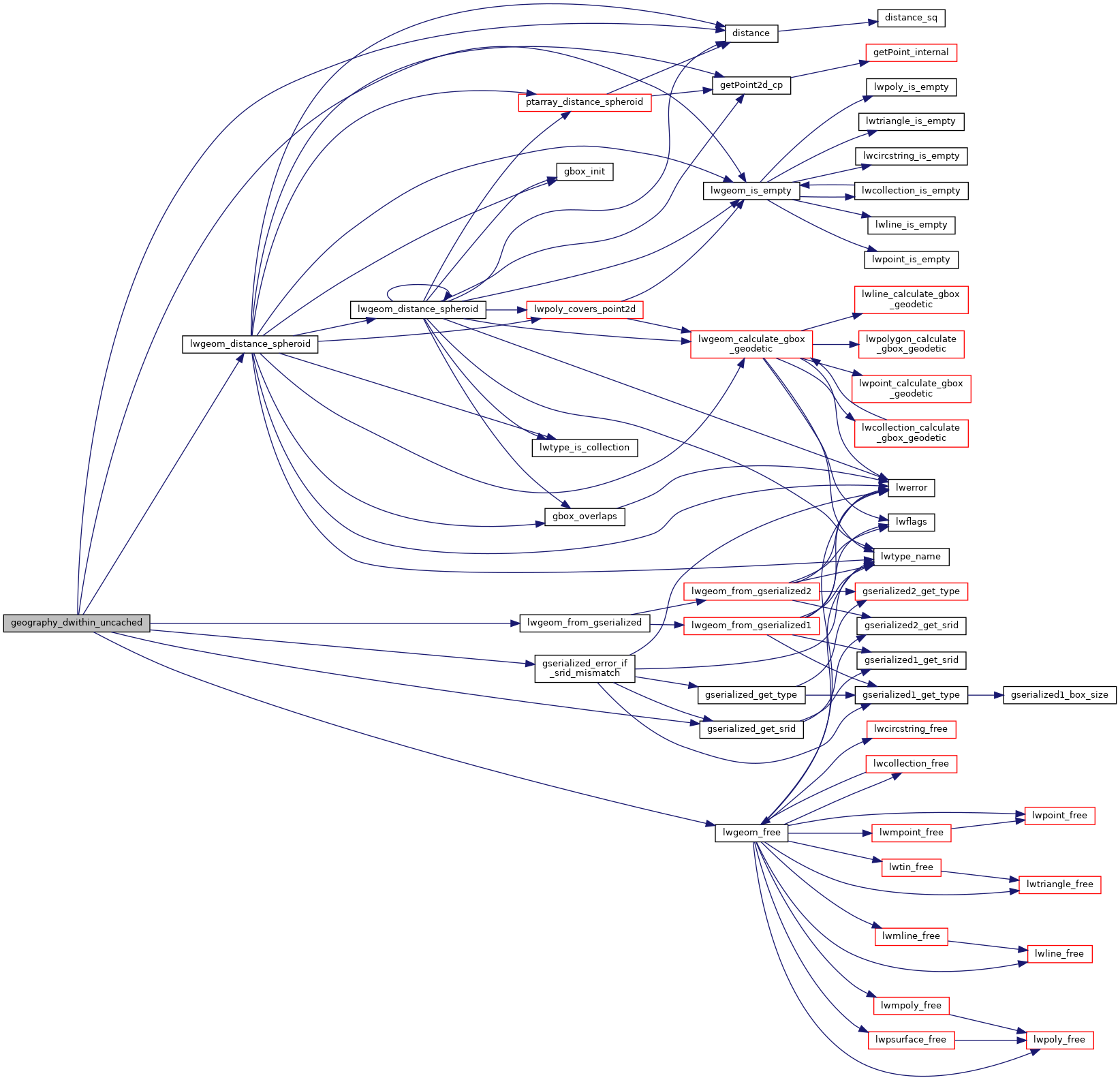◆ geography_dwithin_uncached()
| Datum geography_dwithin_uncached | ( | PG_FUNCTION_ARGS | ) |
Definition at line 386 of file geography_measurement.c.
void gserialized_error_if_srid_mismatch(const GSERIALIZED *g1, const GSERIALIZED *g2, const char *funcname)
Definition: gserialized.c:403
int32_t gserialized_get_srid(const GSERIALIZED *g)
Extract the SRID from the serialized form (it is packed into three bytes so this is a handy function)...
Definition: gserialized.c:126
LWGEOM * lwgeom_from_gserialized(const GSERIALIZED *g)
Allocate a new LWGEOM from a GSERIALIZED.
Definition: gserialized.c:239
double lwgeom_distance_spheroid(const LWGEOM *lwgeom1, const LWGEOM *lwgeom2, const SPHEROID *spheroid, double tolerance)
Calculate the geodetic distance from lwgeom1 to lwgeom2 on the spheroid.
Definition: lwgeodetic.c:2204
static int lwgeom_is_empty(const LWGEOM *geom)
Return true or false depending on whether a geometry is an "empty" geometry (no vertices members)
Definition: lwinline.h:203
Definition: liblwgeom.h:443
Definition: liblwgeom.h:457
Definition: liblwgeom.h:374
References distance(), gserialized_error_if_srid_mismatch(), gserialized_get_srid(), lwgeom_distance_spheroid(), lwgeom_free(), lwgeom_from_gserialized(), lwgeom_is_empty(), and s.
Here is the call graph for this function:
